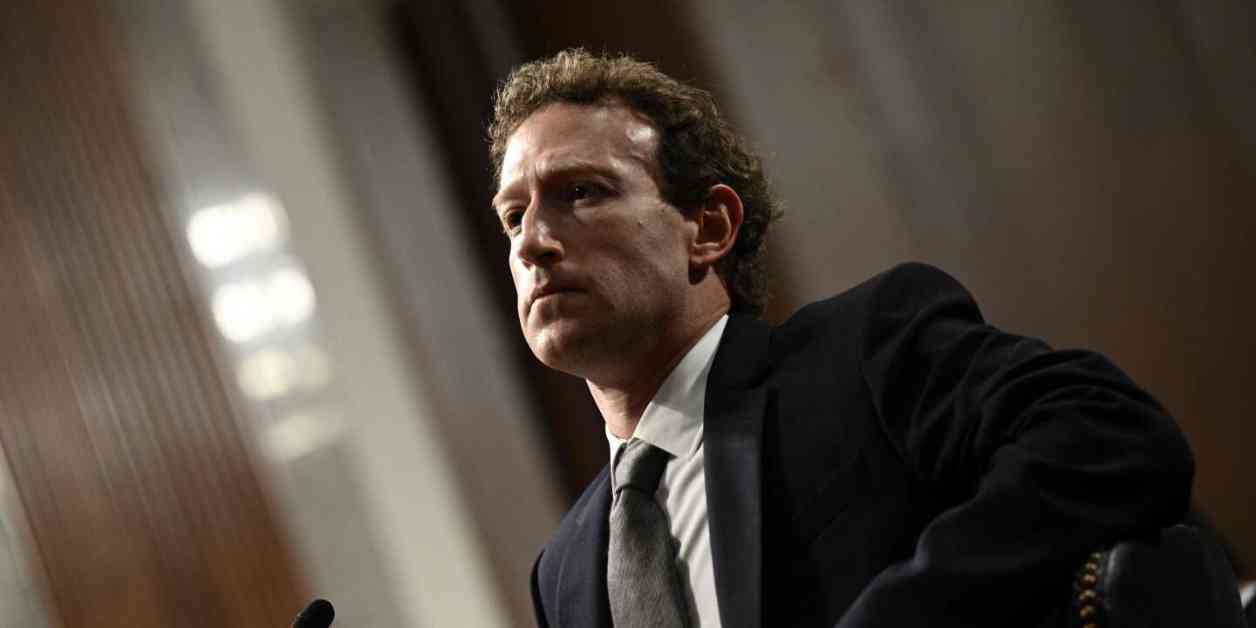Mark Zuckerberg, the CEO of Meta (formerly Facebook, Instagram), recently revealed in a letter to the House Judiciary Committee in the United States that his company had faced pressure from the Biden administration to censor certain Covid-19 related content. Zuckerberg expressed regret over complying with these requests and acknowledged that it was a mistake not to be more transparent about it at the time.
The controversy stemmed from concerns about misinformation surrounding the Covid-19 pandemic and the 2020 U.S. presidential election. The issue of content moderation on social media platforms has been a hot topic, with Republicans accusing tech companies of bias against conservative viewpoints. Zuckerberg’s admission of regret comes in light of these ongoing debates about the role of social media in shaping public discourse and information dissemination.
In his letter to the House Judiciary Committee, Zuckerberg highlighted the evolving policies and procedures at Meta regarding content moderation on their platforms. He emphasized the importance of not compromising content standards under pressure from any administration and stated that Meta is prepared to respond differently in similar situations moving forward.
One particular incident mentioned by Zuckerberg involved allegations against Hunter Biden, the son of President Joe Biden, during the previous election cycle. Meta had temporarily restricted the distribution of an article from the New York Post about Hunter Biden, pending independent fact-checking. Subsequently, it was confirmed that the information was not linked to Russian disinformation, prompting Zuckerberg to reflect on the decision to limit the article’s reach.
Following these events, Meta adjusted its approach to content moderation to prevent similar occurrences. Zuckerberg outlined changes in policies and procedures to ensure a more balanced and transparent content moderation process, such as refraining from temporarily downgrading articles in the U.S. pending fact-check verification.
Moreover, Zuckerberg addressed criticism regarding his financial contributions to support U.S. election infrastructure, which some Republicans claimed favored the Democratic Party. He clarified that he intends to maintain neutrality and avoid any perception of bias in his contributions, emphasizing his commitment to impartiality in the political landscape.
Overall, Zuckerberg’s letter to the House Judiciary Committee marks a significant moment in the relationship between digital platforms and government authorities. It underscores the challenges faced by tech companies in navigating complex issues of content moderation, misinformation, and political influence in the digital age.
Implications for Freedom of Expression
The revelations from Zuckerberg raise important questions about the balance between freedom of expression and the responsibility of tech companies to combat misinformation. The role of social media platforms in shaping public discourse and political narratives has come under scrutiny, with calls for greater transparency and accountability in content moderation practices.
Zuckerberg’s acknowledgment of errors in handling Covid-19 related content underscores the challenges faced by platforms like Meta in navigating the evolving landscape of online information dissemination. As debates around content moderation continue to unfold, the need for clear guidelines and ethical standards in regulating online discourse becomes increasingly crucial.
Looking Ahead: The Future of Content Moderation
The issues raised by Zuckerberg’s letter to the House Judiciary Committee highlight the complex dynamics at play in the digital realm. As technology continues to shape how information is shared and consumed, the role of social media platforms in shaping public opinion and political discourse will remain a contentious issue.
Moving forward, it is essential for tech companies like Meta to prioritize transparency, accountability, and ethical practices in content moderation. By engaging in constructive dialogue with policymakers, stakeholders, and the public, these platforms can work towards fostering a more informed and inclusive digital environment.
In conclusion, Mark Zuckerberg’s reflections on content moderation under pressure from the Biden administration shed light on the challenges faced by tech companies in navigating the complex intersection of politics, public health, and information dissemination. As the digital landscape continues to evolve, the need for responsible and ethical content moderation practices becomes increasingly imperative to safeguard freedom of expression and promote a healthy online ecosystem.

